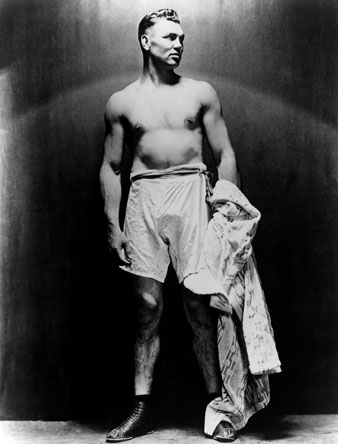 Everett CollectionJack Dempsey
Everett CollectionJack Dempsey
Where was Dempsey when the fight went on? This is the question, the Drifter learns from his young friends, just now stirring the stalwarts of the American Legion and the Army, Navy, and Civilian Board of Boxing Control. It may be all very well for elderly liberals to wrangle over freedom of the press and assemblage and such highbrow matters, but the youth (or, as Mr. Mencken would say, the young yokelry) of America live nearer to realities. Their questions to the Smokeless Champion are short and sweet. “Do you not always arise and remove your hat when you hear the national anthem?” they ask; “What is the national anthem?” “What was the Lusitania? Where is Belgium? France? What is a rivet? Did you ever drive one?” “Is it true that your family was dependent upon you for support before you made your claim for exemption [or] … that you were a rider of brake-beams and that you returned to your home and folks in the days previous to your fight with Jess Willard only when you were ‘broke and hungry’?” So the wounded officers in the hospital at Fox Hills, Staten Island. To the Drifter’s ears this has a singularly classic sound. It reminds him of Coriolanus, of whom Plutarch and Shakespeare tell us that, though he had fought magnificently against the Volscians and had captured Corioli, when he came to ask the Romans for election to the consulate he could not bring himself to show his wounds in the forum, but was so haughty and reserved that the people turned against him and drove him from the city. History swings back along its ancient course. Where Coriolanus once stood now stands Dempsey. Without war there are no wounds, and without wounds there are no heroes, and without heroes there are no reverent followers.


